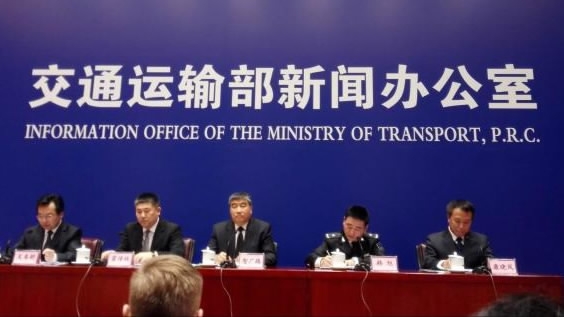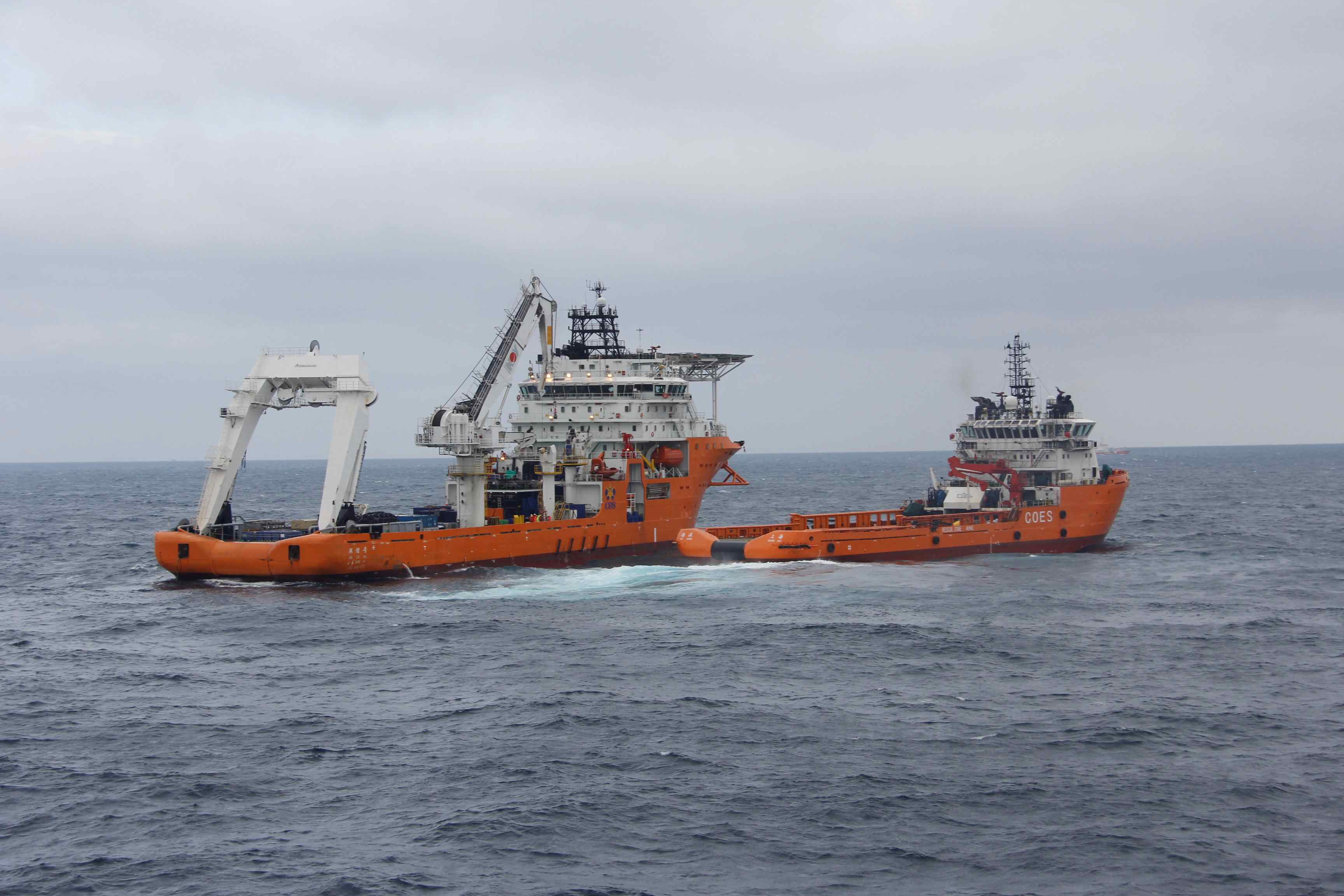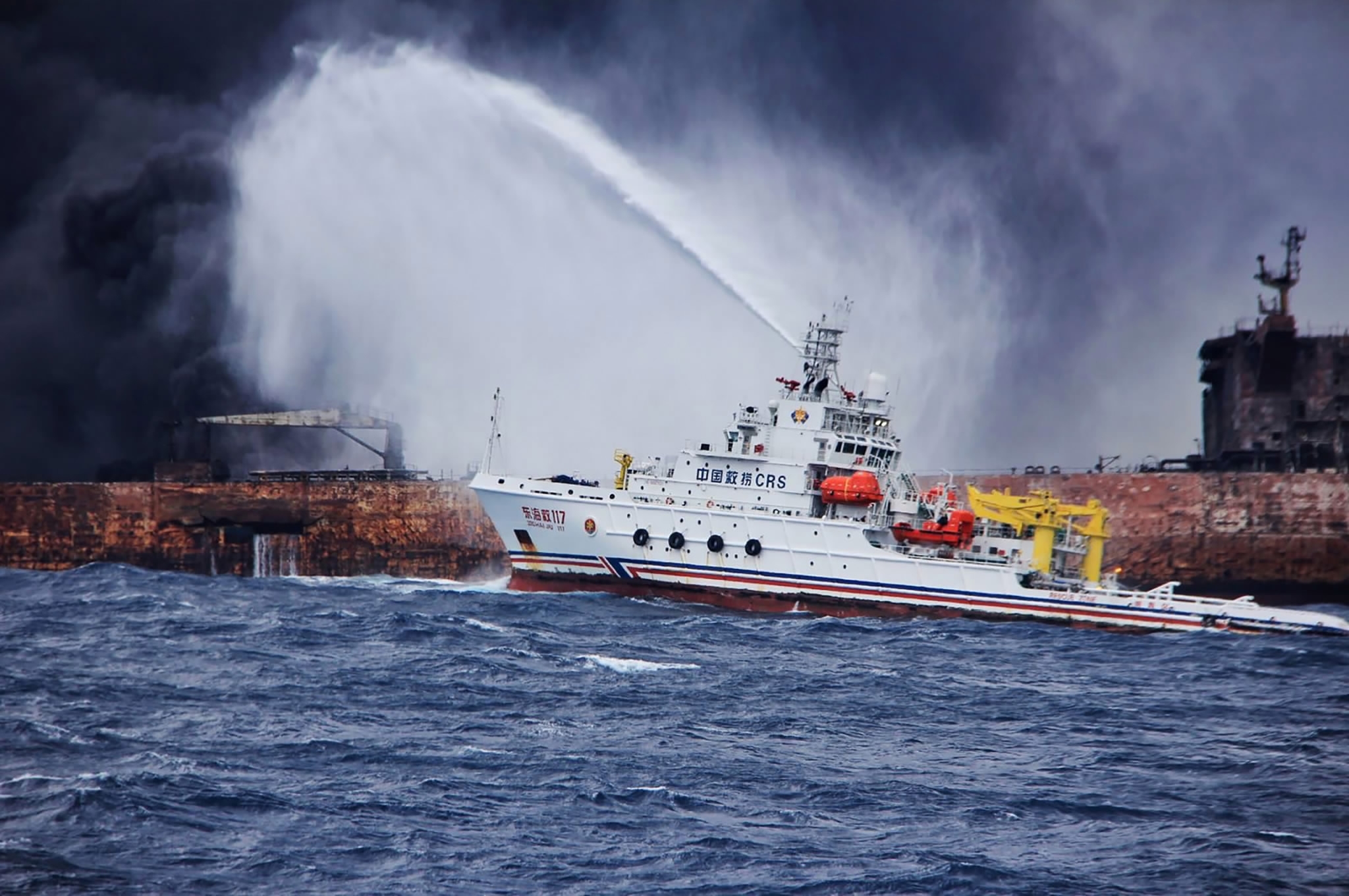
China
20:08, 01-Feb-2018
China steps up clean-up efforts in East China Sea
By Ren Xueqian

Chinese authorities said on Thursday that they have stepped up their efforts to contain the oil spill in the East China Sea which resulted from last month’s collision involving the Iranian Sanchi tanker. Officials said they were maintaining surveillance of the area, while water samples were taken from around the site of the wreckage are assessed for levels of contamination.
Dubbed as one the worst oil tanker collisions in years, reducing the level of contamination in the ocean is top priority for the Chinese government.
According to China’s State Oceanic Administration (SOA), strong winds and currents have dispersed the oil from the sunken tanker mainly in the south and northeast directions. Levels of contamination and the concentration of oil also differ in each area.

Chinese rescue ships work to clean oil slicks from the sunken Iranian oil tanker Sanchi in the East China Sea, Jan. 17, 2018./ Reuters Photo
Chinese rescue ships work to clean oil slicks from the sunken Iranian oil tanker Sanchi in the East China Sea, Jan. 17, 2018./ Reuters Photo
Over the past weeks, officials say five vessels have been sent to the wreckage site to clean up the spill, and an underwater robot has also been sent to investigate the damage.
Rescue teams are using oil-eliminating chemical dispersants, absorbent materials, fences, and fire hydrants in the clean-up.
But there’s more than just the oil to worry about.
“We know the vessel was carrying some 1,900 tons of fuel in addition to condensate,” said Zhi Guanglu, deputy director of China’s Maritime Search and Rescue Center.
“If we don’t clean up the fuel, it can damage the marine life. Currently, we are working with Iran to see if we could salvage the ship, because it has to be done with the consent of the ship owner under international maritime law,” said Zhi.

The Chinese firefighting vessel Donghaijiu 117 sprays foam on the burning oil tanker Sanchi off the coast of eastern China./ VCG Photo
The Chinese firefighting vessel Donghaijiu 117 sprays foam on the burning oil tanker Sanchi off the coast of eastern China./ VCG Photo
The panama-registered Sanchi was carrying 111,130 tones of condensate when it collided with the CF Crystal, a Hong Kong-registered freighter, on Jan. 6.
Condensate oil is an ultra-light and highly combustible form of crude oil. Its remnants can be absorbed by marine life, especially commercially harvested fish, which can lead to more serious health and environmental problems.
“To better monitor and assess the impact on fishing businesses, we have collected nearly 500 water samples from 40 stations. We have set a 30-sea-mile radius from the sunken vessel, and will continue our monitoring efforts to ensure that no fishing boats will go near the parameter,” Zhi said.
Cause of the collision is still unknown at this point.
The tanker exploded soon after the collision and was on fire for more than a week. It sank completely on Jan. 14.
All 32 of its crew – including 30 Iranians and two Bangladeshis – were killed in the accident.

SITEMAP
Copyright © 2018 CGTN. Beijing ICP prepared NO.16065310-3
Copyright © 2018 CGTN. Beijing ICP prepared NO.16065310-3